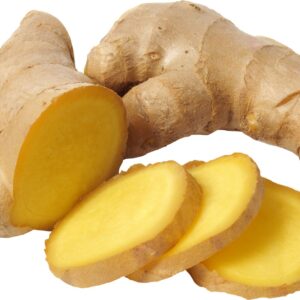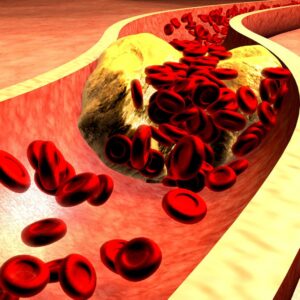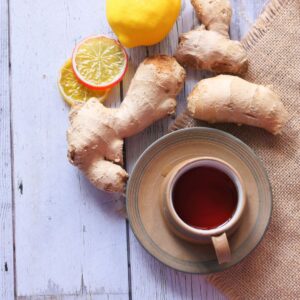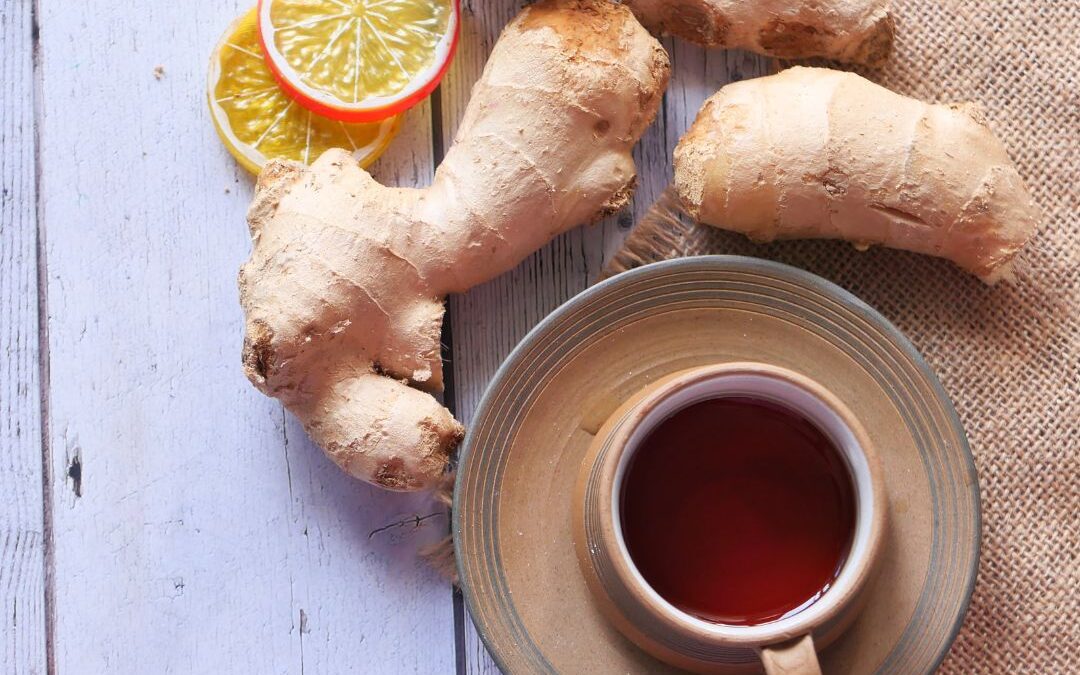
Ginger is one of those amazing plants that happily resides in the culinary and medicinal food camps. It’s cost effective, easy to use and available in most supermarkets. More importantly, it’s uses are far reaching; spanning musculoskeletal, digestive, heart health, respiratory, urinary and our immune system.
Ginger for nausea and stomach upsets
It’s most commonly known for its ability to overcome nausea and calm an upset stomach. It can be used in moderation for morning sickness. And it’s also great for those gastric bugs or if you ate something that’s just not sitting right. And have you overindulged on a night out, it’s a lifesaver.
the herbal actions of ginger
It’s warming and pungent. Herbalists refer to it as an acrid bitter. It helps your digestion by getting the bile moving and supporting your gallbladder. Its pungent personality provides a clue as to its herbal actions. This ability to warm and move things along are so effective when you need to move cold stagnant congestive states from deep within the body and out into the open.
Ginger for respiratory conditions

That’s part of its magic as a respiratory herb. It helps you to expel that cold hard to move phlegm.
It’s antibacterial and antiviral. So not only is it fighting those germs when you have a cold, its heating qualities are working with your immune system to create as inhospitable an environment as possible.
Combine that with its ability to support you in removing congestion and it’s your first line of defence when you feel a cold coming on.
Ginger for heart health
Ginger is great for heart health. It lowers blood pressure through a variety of mechanisms such as blocking calcium channels, inhibiting angiotensin converting enzyme. It also encourages vasodilation by stimulating the creation of endothelial nitric oxide. These are all things responsible for lowering our blood pressure.

If you’re on blood pressure medication, measure your blood pressure regularly to ensure that the added hypotensive effects of ginger aren’t bringing your blood pressure down too low.
Conversely, if you’re on blood pressure medication and you can’t quite get your blood pressure down to the level you need, ginger, when taken regularly may just tip the scales in your favour.
Ginger can be helpful for atherosclerosis
There’s also some promising small scale research that suggests ginger can reduce oxidisation of LDL cholesterol. So why is this of interest?

It’s because oxidative damage to your LDL cholesterol is thought to play a key role in the creation of atherosclerosis. Atherosclerosis is where you get a buildup of plaque on the walls of your arteries and it reduces blood flow but it can also block the artery if this plaque ruptures and your body tries to repair it by creating a clot.
Ginger is also a circulatory stimulant, so as well as supporting heart health through this mechanism; it can be helpful in moving toxins along and also in that first stage of injury repair. Researchers have also confirmed its traditional use as a pain reliever, particularly when dealing with musculoskeletal or period pain.
How to use ginger
It’s really easy to bring ginger into your lifestyle. You can add it to your meals, for example. Personally, I like fresh ginger tea. And here’s my quick and easy way for making it.
Fresh ginger root tea recipe
You’ll need some fresh ginger root about the size of your hand, some water and a blender. It needs to be a powerful blender because ginger root is quite fibrous. I use a NutriBullet.
- Peel the ginger root and add it to your blender.
- Top it up with water and give it a good blitz.
- Once it’s blended, pass it through a sieve to remove the fibrous parts. You don’t have to but it’s just a nicer tea.
- Store your fresh ginger root tea in the fridge for three to four days or you can freeze it by pouring the ginger tea into some ice cube trays

Add about a third of a cup of the ginger concentrate to your cup.
You can add any extra yumminess like honey, lemon or cinnamon and then top it up with boiling water if you want a hot drink or cold water for a cold drink.
Other ways to use ginger
If you’re out and about keep some masala chai tea on hand. It combines black tea with ginger, cardamom and cinnamon. It will have less ginger in it than your ginger tea but often it’s about incorporating many small changes to your lifestyle. So when taken together, these create a huge leap forward but they tend to feel a little more manageable along the way.
So how will you add ginger to your life? A tasty Indian or Thai style curry, some chai or ginger tea. Perhaps just two or three slices put in your glass or cup of water. The possibilities are endless and the health benefits immense.

